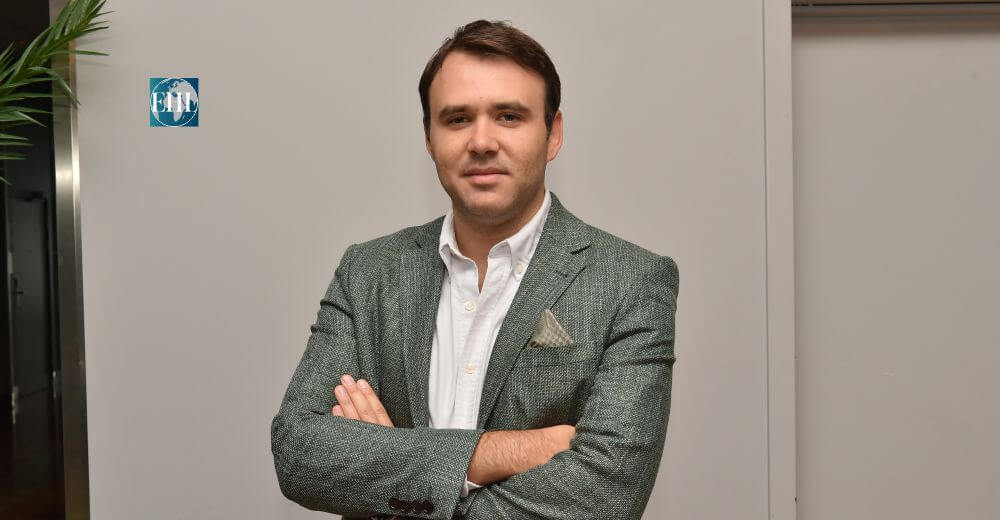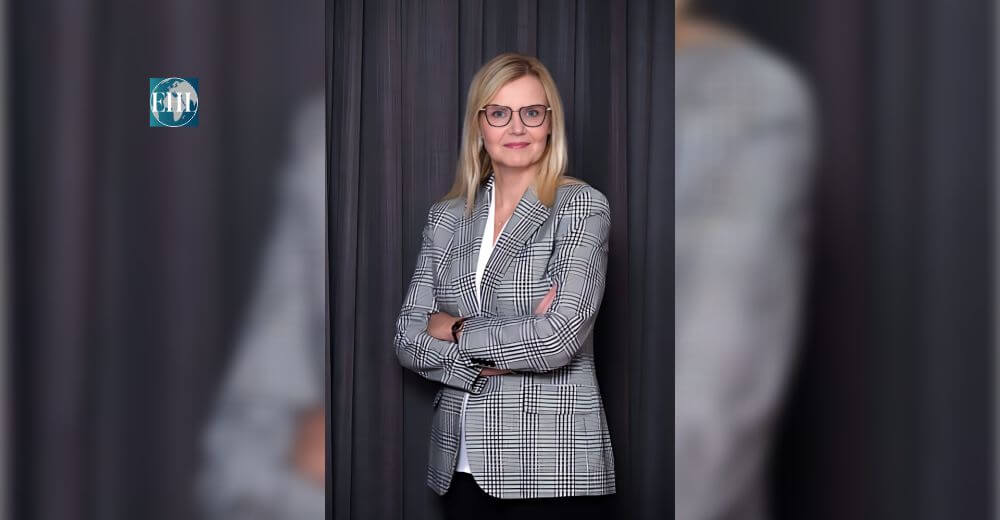In today’s changing healthcare environment, the importance of contract research organizations (CROs) has never been more significant. The demand for dynamic and creative leadership is crucial as clinical trials become more intricate worldwide. Philip Raeth, who serves as Managing Director of Palleos Healthcare, stands out in a competitive environment due to the combination of advanced technology and a deep understanding of clinical research, ensuring Palleos’ success. The company provides clients with a unique blend of local knowledge and global influence, developing tailored solutions to address the changing needs of the healthcare industry. In June this year, Palleos merged with OCT Clinical, a CRO based in Eastern Europe, creating a unified entity under the Palleos brand. This merger strengthened the company’s presence across Europe, enhancing its ability to recruit patients both in Western and Eastern Europe. This expansion complements Raeth’s focus on blending advanced technology with a comprehensive understanding of clinical research, positioning Palleos as a progressive ally in the CRO sector.
Raeth’s journey to becoming a leader has been influenced by a diverse career that includes business, technology, and life sciences. Upon finishing his Ph.D. in Management Information Systems, he explored different sectors like e-commerce and e-mobility before transitioning to the life sciences field with the help of family ties. Renate Walter-Kirst, mentor, founded and sold her own CRO earlier in the mid-2000’s. She then founded Palleos in the early 2010’s with Raeth joining the company in 2011 and fully immersing himself in the company by 2013. Over the years they both worked on its transformation into a full-service CRO, primarily active in the academic sphere. Before taking on his Managing Director role, he gained hands-on experience under Renate’s mentorship and in departments like business development, data management, pharmacovigilance and information technology in clinical research giving him a holistic understanding of the industry and enabling Palleos to move toward its current success.
His combination of a technological mindset, an entrepreneurial mentor driven start in the career, and deep-rooted knowledge of clinical research makes him a pivotal figure in the industry. Under his stewardship, Palleos has embraced innovation and efficiency as guiding principles, ensuring the company’s continued relevance and competitiveness in a sector that thrives on technological advancement.
Let’s learn how Raeth and his team at Palleos Healthcare are transforming the CRO industry through innovation and strategic leadership!
From an Academic CRO to a Full-Service Technology-Focused Clinical Trial Partner
Since Raeth’s entry into the CRO industry in 2011, the landscape has undergone significant changes, primarily driven by technological advancements and regulatory harmonization. “When I entered this field, I was struck by how far behind clinical research was in adopting modern technology,” he reflects. “The gap between e-commerce, where digitalization was thriving, and the CRO industry was significant.” This gap marked the beginning of what he calls the “second wave of digitalization,” which gained traction around 2014-2015. This wave saw the introduction of data-driven approaches in clinical trial monitoring and centralized databases that allowed for real-time analytics and improved patient recruitment strategies.
This digital shift did not come without its challenges. As Raeth notes, “The challenge was not just in adopting new technologies but ensuring they met the increasingly stringent regulatory frameworks.” Regulatory bodies in Europe and the United States began requiring more robust validation processes for clinical trial software, complicating the landscape for companies looking to innovate. “Today, the environment is much more conducive to innovation, but the global nature of the industry has made local expertise more critical than ever,” he adds.
Palleos Healthcare has been adept at navigating these shifts. As Raeth points out, “Our approach is rooted in combining local expertise with the global scalability needed to succeed in today’s clinical research environment.” This hybrid strategy allows Palleos to balance the regulatory rigor of major European markets with the cost and recruitment advantages found in Eastern Europe.
What Makes Palleos Different From its Competitors
By merging the regulatory strength of key European markets with expanded patient recruitment capabilities across both Western and Eastern Europe, Raeth has strategically positioned Palleos as an innovative and progressive force in the CRO sector. This recent M&A deal with OCT Clinical has further distinguished Palleos from competitors by enhancing its recruitment reach across Europe, with specific expertise in Eastern Europe. In a market crowded with CROs of all sizes, Palleos Healthcare’s focus on small to mid-sized biotech firms and smaller pharmaceutical teams has allowed the company to carve out a unique niche. “We’re not directly competing with the large CROs focused on global trials and the market of pharmaceutical companies,” Raeth explains. “Instead, we operate in that sweet spot where our clients need a blend of local expertise and broader international access.” This has made Palleos particularly attractive to biotech firms looking to enter highly regulated European markets while still optimizing their budget.
The benefits of this approach are tangible. “We’ve been able to accelerate patient recruitment in places like Poland and Hungary, where the speed of recruitment can significantly shorten trial timelines,” he says. This advantage is especially critical for smaller biotech firms that may not have the resources to endure prolonged trial delays or bear to enter competitive trial landscapes. By maintaining close contact with clients and providing a direct line to experienced professionals, Palleos ensures that trials are managed with both agility and transparency, something larger CROs often struggle to achieve.
Beyond its operational model, Palleos’ internal culture sets it apart from its competitors. “We’ve built our company with a matrix-style organization in mind,” says Raeth. “This has allowed us to scale projects quickly while maintaining clear lines of communication and collaboration across departments.” This internal structure, combined with Palleos’ commitment to preferred provider collaborations, has allowed the company to be both flexible and efficient.
AI’s Role in Revolutionizing Clinical Trial Operations
Technology and innovation form the backbone of Palleos Healthcare’s strategy. From the start, the company has recognized that the future of clinical research lies in leveraging advanced digital platforms to streamline operations and improve data integrity. Palleos partners with leading vendors like Medidata and Veeva to implement robust electronic data capture (EDC) systems and clinical trial management solutions. “These partnerships allow us to use the best tools available, ensuring that our trials are both efficient and compliant with international standards,” he explains.
However, Palleos’ commitment to technology goes beyond integrating existing solutions. The company is actively exploring the potential of artificial intelligence (AI) to enhance clinical trial processes. “We’re particularly excited about exploring AI, specifically we are exploring the use of protocol writing and large language models (LLMs),” Raeth shares. “Using large amounts of historical data and regulatory guidelines to generate protocol drafts, speeding up the development process while ensuring compliance will help steering the complexities of a trial protocol and its lifecycle.” This approach will not only save time but also allows Palleos to identify potential issues early in the trial design phase and other processes of the clinical trial landscape.
Raeth sees even broader applications for AI in the near future. Predictive analytics, for example, can help CROs anticipate patient recruitment trends and identify high-performing clinical sites. “By using AI to predict enrollment rates or flag potential data inconsistencies, we can allocate resources more effectively and ensure trials run smoothly,” he says. This forward-thinking approach places Palleos at the cutting edge of CRO innovation.
Overcoming Geopolitical and Regulatory Complexities
The CRO industry today faces a complex landscape shaped by geopolitical dynamics, technological advancements, and regulatory challenges. Raeth notes that the most pressing challenges stem from these areas and highlights how Palleos is addressing each one to stay ahead in a rapidly evolving market.
- Geopolitical Challenges
Geopolitical tensions, particularly between major world powers, are reshaping the life sciences sector, influencing supply chains, regulatory environments, and international collaborations. Conflicts, trade disputes, and shifting alliances can disrupt the timely execution of multinational clinical studies. For example, trade restrictions or diplomatic strains can directly impact the progress of cross-border research. Furthermore, the rise of Chinese companies as significant players in drug development introduces new competitive dynamics and requires a deeper understanding of diverse business cultures and regulatory frameworks.
Palleos has taken a proactive approach to these geopolitical challenges by expanding its presence in emerging markets like China. “We’re investing time and resources to understand the cultures, business practices, and regulatory landscapes of key markets,” Raeth explains. This strategy not only positions Palleos to mitigate potential risks but also to leverage the opportunities these growing markets offer, enabling their clients to access critical regions while reducing uncertainties.
- Technological Advancements
Technological advancements are another transformative force in clinical research, creating both opportunities and challenges. AI is revolutionizing clinical trials, from data analysis and patient recruitment to trial design, yet integrating AI requires significant investment in infrastructure and skilled personnel. There are also ethical considerations and evolving regulations surrounding AI in healthcare that must be carefully navigated. In addition, the rise of medical devices and software as medical devices (SaMD) has introduced new regulatory and operational complexities that demand specialized expertise.
Palleos has addressed these technological challenges by collaborating with innovative technology vendors and partners. “We’re integrating AI-driven tools to enhance data analytics, improve patient matching, and optimize trial designs,” says Raeth. By embracing SaMD and developing the necessary infrastructure for decentralized clinical trials (DCTs), Palleos is actively expanding its capabilities to manage these complex trials effectively. Their investment in secure digital platforms and staff training also supports their commitment to adapting to DCTs while ensuring data protection and compliance.
- Regulatory Complexities
As clinical trials become increasingly global, the regulatory landscape grows more intricate. Emerging markets such as China, Latin America, and the Asia-Pacific region each present unique regulatory pathways, approval processes, and ethical considerations. For CROs conducting multinational trials, navigating this regulatory diversity can be a significant challenge.
Palleos has developed a robust internal knowledge base and a network of local experts to address these complexities. “Our team includes regulatory specialists well-versed in the nuances of different regions, and we invest in continuous education to keep our staff updated on the latest developments,” Raeth shares. By building close relationships with local authorities and industry experts, Palleos ensures its trials meet global standards while complying with local regulations. This proactive approach enables them to offer smooth and compliant trial execution across multiple regions, positioning Palleos as a trusted partner in a dynamic and evolving industry.
Innovation Through Collaboration
For Raeth, partnerships are central to Palleos’ success. “We collaborate with academic institutions, technology startups, and industry consortia to stay at the forefront of innovation,” he explains. One of Palleos’ most ambitious projects is the NEOMONO study, a Phase II trial focused on triple-negative breast cancer (TNBC). Conducted in partnership with Roche, the study utilized a Bayesian statistical approach, allowing for early interim analyses and real-time trial adjustments. “Even though the trial didn’t meet its primary endpoint, it generated valuable data that will inform future research in TNBC,” says Raeth.
This project exemplifies how Palleos blends innovation with operational agility. “The ability to pivot based on real-time data is a huge advantage in today’s fast-moving clinical trial environment,” he adds. It also underscores the importance of close collaboration with regulatory bodies, as the trial’s innovative design required significant upfront discussions with German regulators to ensure compliance.
What’s Going to Happen to The CRO Market?
Looking ahead, Raeth envisions an even greater emphasis on technology and patient-centric approaches in the CRO industry. “The future of clinical trials will revolve around data orchestration and real-world data collection,” he predicts. As AI and blockchain technologies become more integrated into clinical research, CROs that master these technologies will be positioned to lead the market. “The CROs of the future will be those that can manage complex data ecosystems while keeping the patient at the center of the trial process,” he suggests.
He also believes that decentralized clinical trials will play a key role in shaping the industry. “As more trials move away from traditional clinic-based models, CROs will need to focus on direct patient engagement and remote data collection,” Raeth says. This shift will not only improve patient recruitment and retention but also create new opportunities for gathering real-world evidence through wearable devices, mobile applications, and beyond.
People Who Make It Work
According to Raeth, Palleos’ strategy begins with presenting a compelling and comprehensive vision for the future. “An exciting future is, in my view, the best strategy for attracting top talent,” he shares. By articulating the evolving role of CROs, the industry’s challenges, and the opportunities ahead, Palleos seeks to inspire professionals who want to be part of an organization actively shaping the industry.
In addition to this visionary approach, Palleos actively collaborates with academic institutions, offering internships, participating in career fairs, and engaging in joint research projects. “We build early relationships with students and potential future employees,” Raeth explains. These initiatives help identify promising individuals who share Palleos’ values and passion for innovation. By fostering these connections, Palleos not only contributes to the development of emerging talent but also builds a pipeline of skilled professionals aligned with the company’s mission and culture.
Further, Palleos invests in equipping its team with the latest technologies and industry knowledge to stay ahead in a fast-changing environment. “Our team is the backbone of our success,” Raeth emphasizes. “We make it a priority to empower them with the tools and knowledge they need to excel.” Through these efforts, Palleos is well-positioned for future growth, supported by a committed team that embraces innovation, collaboration and operational excellence.









